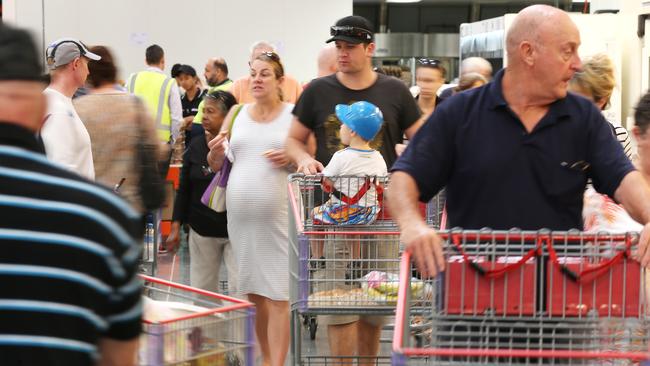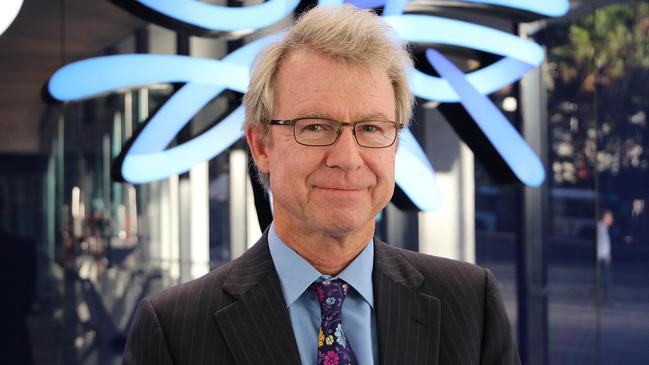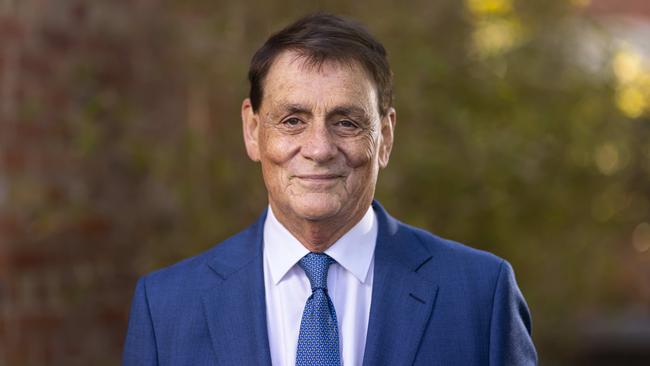There’s a very high risk of recession but it won’t be like the 1990s, say economists
Economists say there’s a significant likelihood of a recession, even though most say central banks haven’t lifted interest rates enough to win the battle with inflation.

Australian households face more pain, with economists seeing a high chance of recession even though most say central banks haven’t lifted interest rates enough to win the battle against inflation.
But while households are grappling with the soaring cost of living, economists don’t expect the kind of deep recession seen in the early 1990s that would stop inflation in its tracks and prevent further interest rate hikes or allow them to be cut quickly.
A survey of financial markets economists by Bloomberg this week found most expect weak quarterly economic growth of 0.2 for the June quarter, increasing to 0.3 per cent by the March quarter of 2024 and 0.6 per cent by the end of 2024. Two consecutive quarterly contractions would mark a technical recession, but recessions typically involve a sharp rise in unemployment.
Annual headline inflation is expected to fall from 6.3 per cent in the June quarter to 3 per cent by the end of 2024 – the top end of the Reserve Bank’s 2-3 per cent target band.
Inflation has exceeded the top end of the RBA’s target band since the September quarter of 2021.
The slow return to target is expected even though the cash rate is expected to rise from 4.1 per cent to 4.6 per cent by September. It is tipped to slowly ease to 3.85 per cent by the end of 2024.

“The risk of recession in Australia is now very high,” AMP Capital chief economist Shane Oliver said.
Dr Oliver said the RBA had already done enough to slow the economy and bring inflation back to target. He saw clear evidence of slowing demand in retail sales, building approvals, business investment plans, slowing economic growth and early indications of a slowing jobs market.
But the RBA’s tightening bias, still high inflation and the rising impetus to wage growth suggested it would lift the cash rate to 4.6 per cent by September, Dr Oliver said.
It came as the Australian bond futures yield curve – measured by the spread between the implied yield on 10-year and three-year bonds – turned negative for the first time since 2008.
Such an “inversion” of the normally positive yield curve points to economic weakness.
Australia’s ASX 200 share index dived 3.5 per cent to a three-week low of 7099.2 points this week, eliminating almost all of a seven-day winning streak in the space of three days.
However, Westpac chief economist Bill Evans warns that more needs to be done to lower inflation.
He said the impact of central banks’ aggressive policy tightening – in response to the inflation surge caused by supply-chain disruptions and the unprecedented degree of fiscal and monetary stimulus during the pandemic – had been blunted by “unusual legacies” of the pandemic.
These included an imbalance of labour demand and supply; an accumulation of “excess savings” by households and businesses; and fixed-rate borrowing in Australia, Canada and New Zealand in response to a long period of low fixed rates in the years leading up to and during the pandemic.
“My take on the current challenges of central banks is that they have been responding to the surprising resilience of asset markets, services inflation, labour markets and, in some cases, household spending due to the unusual legacies of the pandemic,” Mr Evans said after meeting central bank officials in the US, Canada, France, Germany and Britain over the past four weeks.

But the impact of the tightening cycles has been “delayed rather than neutralised”, according to Mr Evans.
In his view this points to an extended period of high rates, but eventually more aggressive easing cycles than currently factored into market pricing, likely to begin during 2024.
While the Federal Reserve paused its rate hikes this month, the Federal Open Market Committee projected two more US rate hikes. Meanwhile, the Reserve Bank of New Zealand, Bank of Canada and RBA restarted rate hikes recently. Both the Bank of England and Norway’s Norges Bank delivered a bigger than expected 50 basis point increase to their policy interest rates this week.
Mr Evans also pointed to the RBA’s recent concern about upside risks to inflationary expectations and a speech by Michele Bullock on “achieving full employment” this week.
The RBA deputy governor said that if the unemployment rate were to rise to 4.5 per cent as the RBA expected by mid-2025, “the economy would be closer to a sustainable balance point”.
“Our assessment is that, for the first time in decades, firms’ demand for labour exceeds the amount of labour that people are willing and able to supply,” Ms Bullock said.
“That is, employment is above what we would consider to be consistent with our inflation target.”
She also noted that with demand for goods and services now “high” relative to the economy’s capacity to supply those things, inflation was “well above” the 2-3 per cent target range.
“Evidence like the recent employment report, which showed the unemployment rate fell from 3.7 per cent to 3.55 per cent, will not be welcomed in the context of achieving that 4.5 per cent ‘target’,” Mr Evans said.
.




To join the conversation, please log in. Don't have an account? Register
Join the conversation, you are commenting as Logout